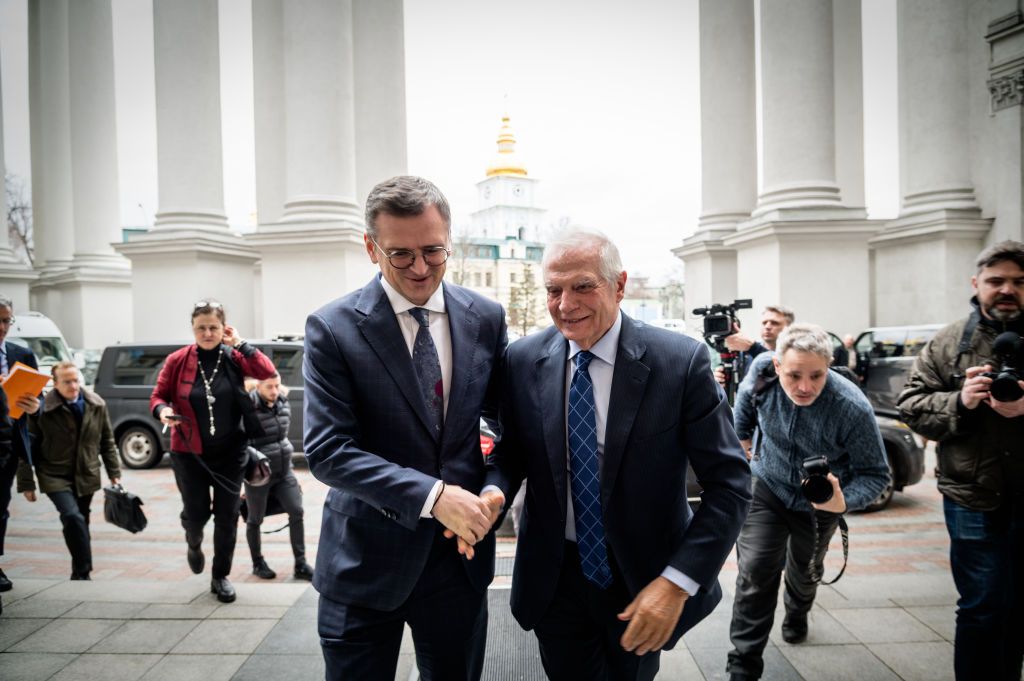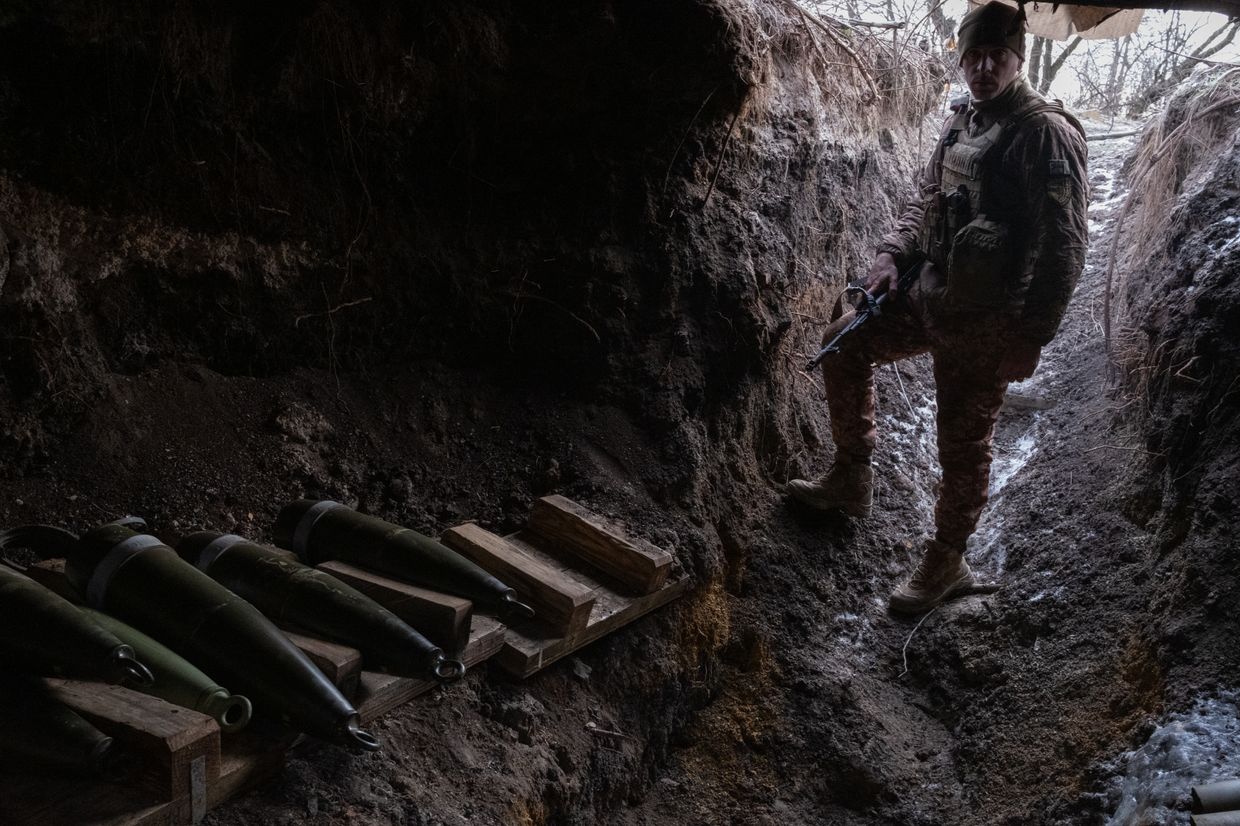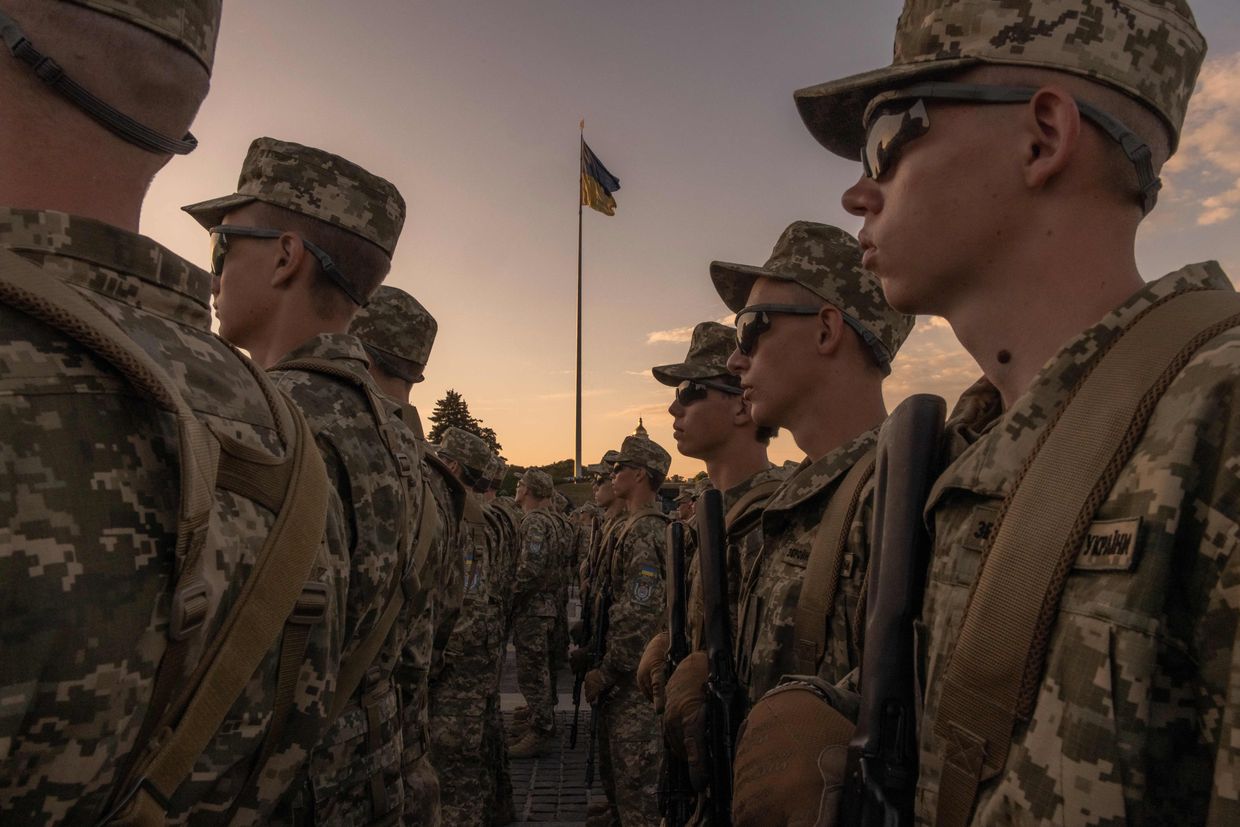NATO members say they are not considering sending troops to Ukraine

NATO Secretary-General Jens Stoltenberg, as well as leaders of Germany, the U.K., and other European NATO member states, have reportedly said they are not considering deploying their troops to Ukraine after French President Emmanuel Macron suggested the possibility of Western military presence in the country.
Macron said on Feb. 26 following discussions among European leaders that sending Western troops on the ground in Ukraine can not be "ruled out" in the future, adding, though, that there was no consensus on such a move.
Macron declined to provide specifics regarding which nations were considering sending troops, adding that he prefers to maintain some "strategic ambiguity."
Sweden's Prime Minister Ulf Kristersson told the Swedish broadcaster SVT the next day that the question of whether to send troops to Ukraine was not relevant to his country at the moment, and there were no requests from Kyiv for that.
"Right now, we are fully occupied with sending advanced materials from Sweden to Ukraine in many different ways, like many other countries are. So that is a whole other thing," said Kristersson.
Sweden is set to join NATO after Hungary approved its membership bid on Feb. 26 following almost two years of delays.
Polish and Czech prime ministers, Donald Tusk and Petr Fiala, issued similar statements at a joint press conference on Feb. 27.
"I am convinced that we should develop the paths of support that we embarked on after Russia's aggression," Fiala said, as cited by the Guardian.
"I believe we do not need to open some other methods or ways," he told reporters, adding that the current focus in supporting Ukraine was on providing defense, humanitarian, and financial aid.
"Poland does not plan to send its troops to the territory of Ukraine. I think that we should not speculate today whether there will be circumstances that could change this position," said Tusk.
Stoltenberg told the Associated Press the same day that NATO did not have plans to send its forces to Ukraine, which has fought off the Russian full-scale invasion for two years.
"NATO allies are providing unprecedented support to Ukraine. We have done that since 2014 and stepped up after the full-scale invasion. But there are no plans for NATO combat troops on the ground in Ukraine," said Stoltenberg.
German Chancellor Olaf Scholz has also ruled out the possibility of sending Western troops to Ukraine, according to Reuters.
"Once again, in a very good debate, it was discussed that what was agreed from the outset among ourselves and with each other also applies to the future, namely that there will be no ground troops, no soldiers on Ukrainian soil sent there by European countries or NATO states," Scholz said on Feb. 27.
Later the same day, Finland, the U.K., Spain, and Italy also reportedly distanced themselves from Macron's statement, ruling out sending their troops to Ukraine.
European heads of state and other Western officials gathered in Paris on Feb. 26 to discuss further support for Ukraine.
At the meeting, Macron highlighted the imperative to bolster security measures to preempt any future Russian assaults on other countries.
Estonia, Lithuania, and Latvia, along with the larger Poland, have been speculated as potential targets of future Russian expansionism. All four countries steadfastly support Ukraine.
Estonia's foreign minister emphasized earlier this month that NATO has a timeframe of approximately three to four years to enhance its defensive capabilities as Russian leader Vladimir Putin ramps up his nation's military activities.
















